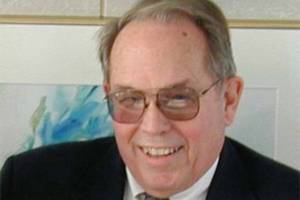What others say: Wasilla council made the wrong call on marijuana
Published 12:41 am Thursday, February 11, 2016
Despite a majority of public comments favoring commercial marijuana, Wasilla’s city council recently voted unanimously last month to ban the sale and cultivation of the plant within the city. The decision means both Wasilla and Palmer have decided they want no part of the pot business.
That’s a shame.
Legal marijuana appears to be here to stay, despite what those on the council might wish. Communities across the state — including Anchorage and Houston — are already making plans for commercial sales and planning ways to manage and regulate the new industry. These areas understand that the tax revenues of marijuana will likely be significant, providing a much-needed source of revenue as the state stares at a possible recession due to the oil price collapse.
Wasilla could have joined these other communities in crafting reasonable and prudent rules for how marijuana should be regulated. In doing so, the city could have easily addressed any concerns the council may have had about issues associated with the industry.
Instead, the council used the specious argument that it had a mandate based on polling numbers showing Wasilla residents opposing the statewide measure legalizing marijuana by a 52-48 margin. First, that’s far from a mandate. Second, using a statewide vote — in which people show up at the polls for a variety of reasons — to represent the community’s feelings on the issue is disingenuous.
Council members also said they’re worried about the potential banking and legal ramifications of accepting marijuana money when the plant remains illegal under federal law. This argument ignores the success municipalities in Colorado and Washington have had with their marijuana industries. Rather than choosing to learn from others who have dealt with the issue, the council instead decided to use this small hurdle to justify an outright ban.
Although heroin, meth and prescription painkillers are the most problematic “hard” drugs in the Valley, alcohol is by far the drug that does the most damage. The amount of harm done by alcohol — in the form of health problems, drunk driving, domestic violence and lost productivity in the workplace — dwarfs that of all other drugs. Yet the council is perfectly fine with having these establishments within its city limits.
Members of the public who spoke in favor of the ban (who were greatly outnumbered by those who opposed it) often cited the effect legal marijuana would have on children as part of the reason to oppose marijuana commerce. Those arguments don’t hold up to scrutiny.
Anyone who thinks marijuana isn’t already widely available in Wasilla simply isn’t paying attention. And the whole idea behind regulating marijuana like alcohol is to make it harder for children to get by siphoning money from the black market. Keeping it illegal in Wasilla only helps those who prey upon drug addicts by operating outside of the law. If marijuana were easy for adults to obtain legally, it would put a significant dent in the profit margins of illegal dealers.
The council’s decision also gives a huge boost to Houston and Anchorage, which will now reap the benefits of their neighbors’ decision to hide from the reality that legal marijuana is a sensible alternative to prohibition.
The council has no problem taking tax money from liquor stores and bars, which are the biggest current blight on our community.
Banning commercial marijuana in Wasilla will prove to be a short-sighted and costly decision by the city council.
—Mat-Su Valley Frontiersman,
Feb. 9




